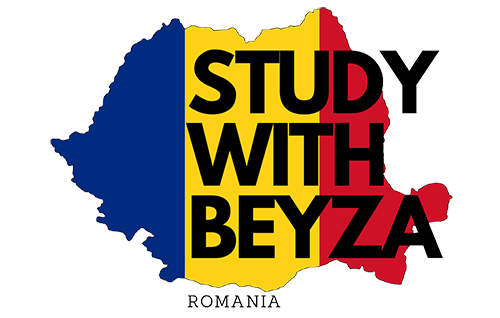Romania has become an attractive educational destination for international students in recent years. Its high-quality education system, affordable costs, and the advantage of receiving a European Union-recognized diploma encourage students to pursue higher education in Romania.
Advantages of Studying at University in Romania
Admission Without Entrance Exams:
Students who graduate from high school in Turkey can study at a university in Romania without the requirement of passing national exams such as AYT-TYT. Although each program has specific entry requirements, universities generally do not require scores from exams like GMAT or GRE.
Affordable Tuition Fees:
Annual tuition fees in Romania start from 1,000 Euros. For programs in engineering, social sciences, and economics, fees typically range between 2,200 and 2,900 Euros. For medical fields such as medicine, dentistry, and pharmacy, fees range between 5,000 and 7,000 Euros and may vary depending on the language of instruction.
Language Options:
Although Romanian is the primary language of instruction, many universities also offer programs in English. For students without sufficient language proficiency, a one-year preparatory course is available.
European Union Diploma:
Degrees obtained from Romanian universities are recognized across EU countries. As a result, graduates can more easily access career opportunities in Europe.
Application Process and Required Documents
In general, the following documents are required for university applications in Romania:
-
High school diploma
-
Transcript or academic record
-
Application form
-
Passport or ID card
-
Language proficiency certificate (if available)
-
Letters of recommendation
-
Photograph
-
Application fee
Since each university and program may have specific requirements, it is advisable to check the official website of the university before applying.
Duration of Studies
The duration of university education in Romania varies by program:
-
Bachelor’s Programs: Typically last 3, 3.5, or 4 years. Some programs, such as engineering, may take 4 years.
-
Medical Fields: Medicine programs last 6 years, while dentistry and pharmacy programs are usually 5 years.
Cost of Living
Compared to other European countries, Romania offers lower living costs. Students can expect to spend approximately 300–500 Euros per month on accommodation, food, transportation, and other expenses. This allows students to manage their budgets more easily.
Popular Universities and Programs
Romania is home to many reputable universities. Cities like Bucharest, Cluj-Napoca, Iași, and Timișoara are especially popular among international students. Engineering, medicine, computer science, economics, and social sciences are among the most sought-after fields of study.
Visa and Residence Permit
International students planning to study in Romania must apply for a student visa and residence permit. Once accepted into a university, students should contact the Romanian Consulate or Embassy to begin the visa application process. Detailed information about required documents and procedures can be found on the official websites of the relevant consulates.
With its affordable costs, admission without entrance exams, and EU-recognized diplomas, university education in Romania presents an attractive option for international students. Thanks to its academic quality, language program diversity, and rich cultural background, Romania is a destination worth considering for those planning to study abroad.

